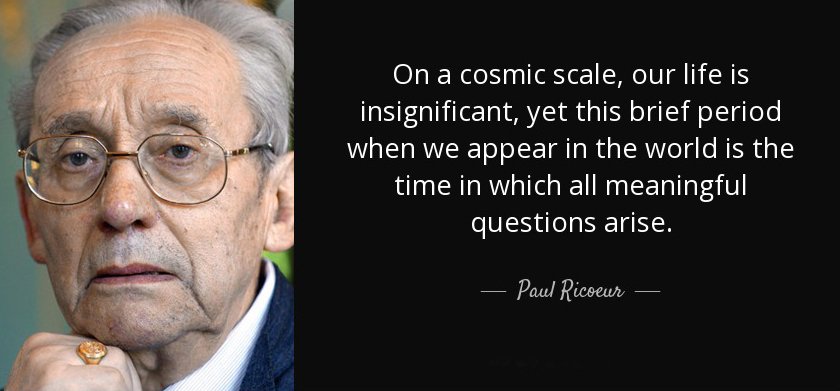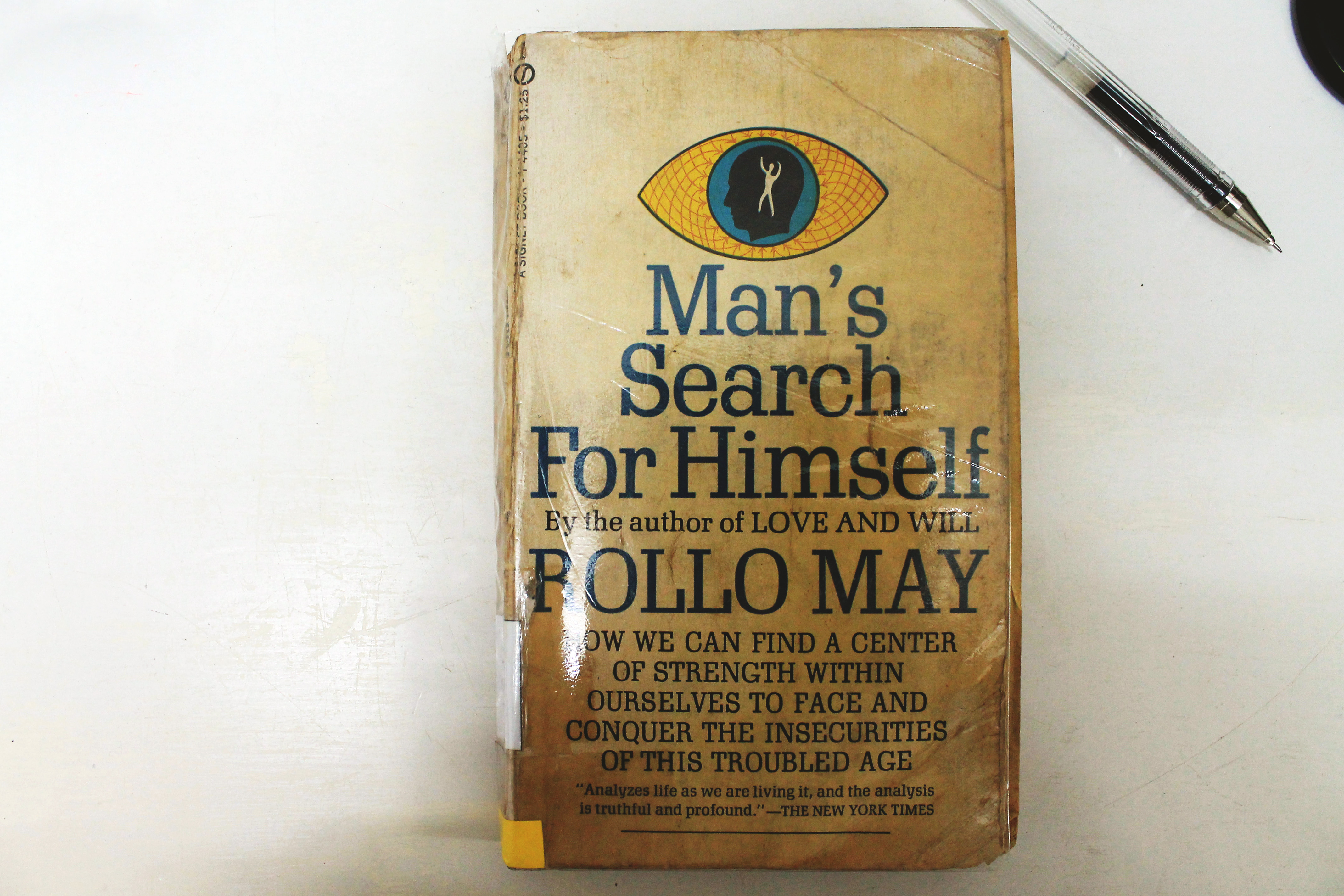
This book is born out of the conviction that we are at the crossroads: one road leads to a completely mechanized society; the other to a renaissance of humanism and hope. This book is meant to clarify the issues for those who have not clearly recognized our dilemma, and it is an appeal to action. It is based on the conviction that we can find the necessary new solutions with the help of reason and passionate love for life, and not through irrationality and hate. It is addressed to a broad spectrum of readers with different political and religious concepts but sharing this concern for life and respect for reason and reality.
This book, like all my previous work, attempts to distinguish between individual and social reality and the ideologies that misuse and “coopt” valuable ideas for the purpose of supporting the status quo.
– Erich Fromm, in the Foreword
It came as a surprise to me to have found this little book not from the psychology section, but from the philosophy section at the library, with a title which is less discussed compared to his more popular works namely the Sane Society or Escape from Freedom. And it has something unique in it in addition to the resonating themes found from the two aforementioned titles – Hope.
This book begins by looking into the phenomenon of hope, what it is and what it is not. For it is through this notion of hope that Fromm will then connect the crucial issues that affect modern man– the phenomenon of technological advancement and its effects on man. Through the lens of hope, a productive anticipation is based not only towards the future but also by focusing on the present.
What is it to hope?
Is it, as many think, to have desires and wishes? If this were so, those who desire more and better cars, houses, and gadgets would be people of hope. But they are not; they are people lusty for more consumption and not people of hope.
Is it to hope if hope’s object is not a thing but a fuller life, a state of greater aliveness, a liberation from eternal boredom; or to use a theological term, for salvation, or a political term, for revolution? Indeed this kind of expectation could be hope; but it is non-hope if it has the quality of passiveness, and “waiting for”—until the hope becomes, in fact, a cover for resignation, a mere ideology.
pp.6
This kind of passive hope is closely related to a generalized form of hope, which might be described as hoping for time. Time and the future become the central category of this kind of hope. Nothing is expected to happen in the now but only in the next moment, the next day, the next year, and in another world if it is too absurd to believe that hope can be realized in this world. Behind this belief is the idolatry of “Future,” “History,” and “Posterity,”… I do nothing; I remain passive, because I am nothing and impotent; but the future, the projection of time, will bring about what I cannot achieve.
pp.8
And even if he tackles the phenomenon of hope, Fromm takes a realistic critique of what it actually means to hope, his critique of society and its destructive effects on the individual cannot actually have been truer until today. Scanning through his words makes one realize or re-affirm observations of how alienated people and society had become from the values of what it means to be human instead of being a cog in the machine.
This society produces many useless things, and to the same degree many useless people. Man, as a cog in the machine, becomes a thing, and ceases to be human. He spends his time doing things in which he is not interested, with people in whom he is not interested, producing things in which he is not interested; and when he is not producing, he is consuming.
pp.38
Among the technological society’s pathogenic effects upon man, two or more must be mentioned: the disappearance of privacy and of personal human contact.
pp.45
Man is caught up in the endless entrenchment of cultural mores and technological instruments to the extent that his awareness of what matters to him the most as a human being are either blocked off, forgotten, or no longer given importance which eventually lead to alienation, loss of hope, and dehumanization. But,
…some people, while unconsciously they have turned into things, carry unconsciously a sense of their identity precisely because the social process has not succeeded in transforming them completely into things.
pp.84
Whereas man is supposed to be the benefactor of these instruments that he made and that the inherited values from religions are meant to the actualization of his humanity, the loss of hope and alienation had turned him into a slave of these very things that he constructed to the extent that he does not know and has lost grasp of what matters to him or cannot move beyond what society expects of him, all the while being utterly powerless to change the situation for the better. Two results can occur when hope is shattered: either the loss of dependence to others or destructiveness,
It is not primarily the economic frustration which leads to hate and violence; it is the hopelessness of the situation, the ever repeated broken promises, which are just as conducive to violence and destructiveness.
pp. 21-22
With regards to computer technology, here is an insight which is also found on his other work, The Anatomy of Human Destructiveness where he expanded the concept of Necrophilia even further to the attraction of man to non-living things such as robotics/AI:
One symptom of the attraction of the merely mechanical is the growing popularity, among some scientists and the public of the idea that it will be possible to construct computers which are no different from man in thinking, feeling, or any other aspect of functioning… One cannot help being suspicious that often the attraction of the computer-man idea is the expression of a flight from life and humane experience into the mechanical and purely cerebral.
pp.43
The computer can serve the enhancement of life in many respects. But the idea that it replaces man and life is the manifestation of the pathology of today.
pp.44
This work is divided into the discussion of hope and its various manifestations: faith, fortitude, resurrection, messianic hope and the shattering of hope; the dehumanized society (AD 2000) and the present technological society (during the time the book was published, on 1968); what it means to be human; suggested steps to the humanization of technological society; and a proposed movement.
As a whole, this book is a means of personal re-affirmation especially to those who are becoming increasingly wary of the present times: the increased use of gadgets with the compulsion to use them, the loss of genuine human connectedness in daily life, the mixed effects of technology on daily life alongside its benefits and its threats to human existence i.e. nuclear weapons, the reduction of human beings to instruments of production or objects of consumption/gratification, the loss of humanity by constant bombardment, destruction and humiliation of human life and dignity by it being reduced to headlines, pictures, videos and forms of entertainment, and the list goes on.
They constantly need the stimulus from the outside, be it other people’s chatter, or the sight of movies, or travel and other forms of thrilling consumption excitements, even if it is only a new man or woman as sexual partner. They need to be prompted, to be “turned on,” tempted, seduced. They always run and never stand. They always “fall for” and never get up. And they imagine themselves to be immensely active while they are driven by the obsession to do something in order to escape the anxiety that is aroused when they are confronted with themselves.
pp.12
Erich Fromm’s work is not a feel-good psychology or philosophy book, it is words describing life in the raw, a refreshing and truthful critique of society and its superficiality and hypocrisies, and how it disrespects the individual human being and eventually the whole of humanity. Regardless of what belief, religion, or ideology one has, one can definitely agree that when it comes to human life and dignity, one has to make the conviction that it should not be used as a means to an end.
The critique took almost the entire book, but Fromm suggested a concrete solution, which is far more suited on the American context. Perhaps, this is the weakest point in the book because of its culture-specific dimension.
Another weak point is the lack of directive approach on how to achieve a passionate love for life when it is clear that modern man is faced with a lot of obstacles that are beyond his control. How to achieve the kind of productive hope or love that this book envisions cultivating in man’s heart which would transcend beyond the obvious societal ills discussed is, what I think, the challenge to the reader himself.
 Philosophical Papers, Volume 1: The Methodology of Scientific Research Programmes by Imre Lakatos
Philosophical Papers, Volume 1: The Methodology of Scientific Research Programmes by Imre Lakatos









,_by_Velazquez.jpg)
